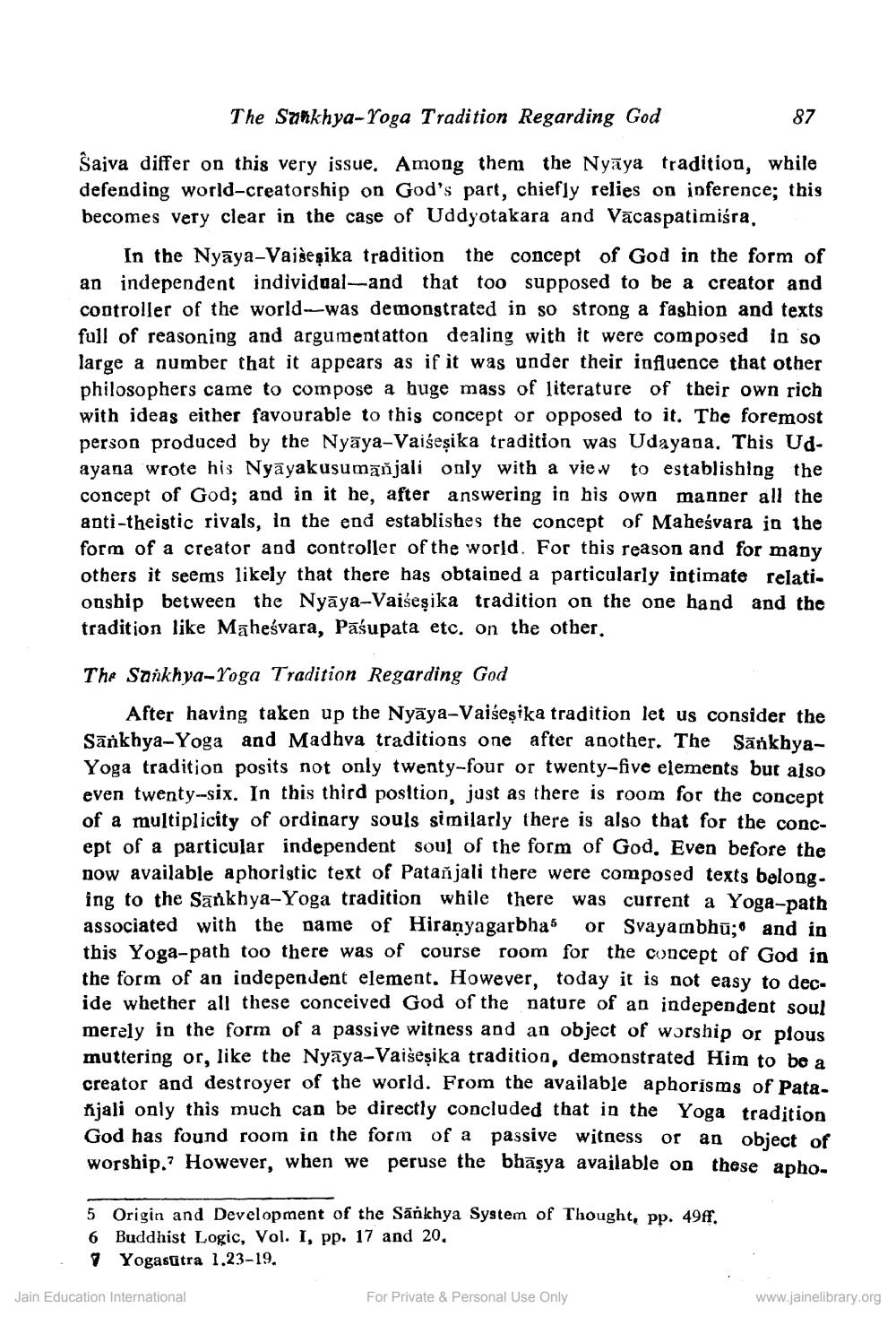________________
The Sankhya-Yoga Tradition Regarding God
Saiva differ on this very issue. Among them the Nyāya tradition, while defending world-creatorship on God's part, chiefly relies on inference; this becomes very clear in the case of Uddyotakara and Vācaspatimiśra.
In the Nyāya-Vajšesika tradition the concept of God in the form of an independent individual and that too supposed to be a creator and controller of the world-was demonstrated in so strong a fashion and texts full of reasoning and argumentatton dealing with it were composed in so large a number that it appears as if it was under their influence that other philosophers came to compose a huge mass of literature of their own rich with ideas either favourable to this concept or opposed to it. The foremost person produced by the Nyāya-Vaiseșika tradition was Udayana. This Udayana wrote his Nyāyakusumāñjali only with a view to establishing the concept of God; and in it he, after answering in his own manner all the anti-theistic rivals, in the end establishes the concept of Maheśvara in the form of a creator and controller of the world. For this reason and for many others it seems likely that there has obtained a particularly intimate relati. onship between the Nyāya-Vaišesika tradition on the one hand and the tradition like Māheśvara, Pāśupata etc. on the other.
The Sankhya-Yoga Tradition Regarding God
After having taken up the Nyāya-Vaišeşika tradition let us consider the Sānkhya-Yoga and Madhva traditions one after another. The SankhyaYoga tradition posits not only twenty-four or twenty-five elements but also even twenty-six. In this third position, just as there is room for the concept of a multiplicity of ordinary souls similarly there is also that for the concept of a particular independent soul of the form of God. Even before the now available aphoristic text of Patanjali there were composed texts belong. ing to the Sankhya-Yoga tradition while there was current a Yoga-path associated with the name of Hiranyagarbha or Svayambhü; and in
Yoga-path too there was of course room for the concept of God in the form of an independent element. However, today it is not easy to dec. ide whether all these conceived God of the nature of an independent soul merely in the form of a passive witness and an object of worship or pious muttering or, like the Nyāya-Vaišeșika tradition, demonstrated Him to be a creator and destroyer of the world. From the available aphorisms of Patañjali only this much can be directly concluded that in the Yoga tradition God has found room in the form of a passive witness or an object of worship.? However, when we peruse the bhāşya available on these apho.
5 Origin and Development of the Sankhya System of Thought, pp. 49ff. 6 Buddhist Logic, Vol. I, pp. 17 and 20. 7 Yogasttra 1.23-19.
Jain Education International
For Private & Personal Use Only
www.jainelibrary.org




